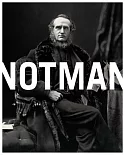Mestizo America, the country of the future offers a general panorama of what it calls Our America, that is, Latin America as seen by one of its outstanding writers. It provides
detailed analysis of its development, transformations, history and defining social forces. But it is also the evocation of a utopia, of the possibility of creating a supra-national society
that ignores the restrictions of frontiers and, thanks to its millenary traditions, creates a common space with a privileged identity that may change the future of the continent. A shared
heritage, historical links and a pat that creates solidarity among its nations are the keys to this visionary ideal.
Original and wide-ranging, poetical yet scrupulously accurate, the book demonstrantes, with a wealth of detail, that the countries of Latin America have a common identity strong enough to
redefine the destiny of the region, above all, because they share a profound and all-embracing culture whose influence is now being felt throughout the world. This culture couold be the
basis for creating a coordinated and balanced economic community, a federated political body and a commonwealth of nations with a dynamic social interchange.
The great challenge for the next century, argues the author, revolves around getting the continent to formulate and establish a political and economic order that is in harmony with the
global trends of the modern world. And while the many provinces of Latin America should not lose sight of their peoples' roots and local cultures, the continent must also create optimum
strategies for the development of its competitiveness, an indispensable condition for achieving prosperity in a world heading towards integration--an integration that not only requires
institutional reforms but also a commitment to Latin American culture as a whole.
This book approaches its subject matter from different angles but all of them converge on a single purpose: to create and strengthen our awareness of the possibilities of a Latin America
that is mestizo, that is "ours." It does this through a rigorous and panoramic description of the history of Latin America which not only covers poltics and economics but also its natural
setting and geography, literature and art, social and intellectual movements, ethnic groups and local traditions, as well as the achievements of its great men. From the multiple examples
given by the author, it is easy to understand that the conditions which may lead to the unification of Latin America do exist and reflect its potential and wealth: there is a new awareness
that its inhabitants belong to an authentic world. One of the key arguments, developed in the final chapter, is that any unification of Latin America must be based on an equilibrium between
material prosperity and humanism, which, in turn, depends on obtaining a higher level of education and greater degree of democracy for its people, as well as a recognition of their innate
dignity.





















